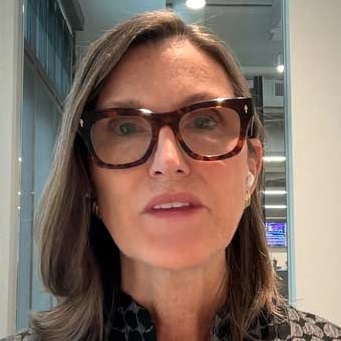Emma Wall: Hello, and welcome to the Morningstar series, "Why Should I Invest With You?" I'm Emma Wall and I'm joined today by Lucy Isles, Investment Manager for the Baillie Gifford High Yield Bond Fund.
Hi, Lucy.
Lucy Isles: Hi.
Wall: So, big time for bonds. We thought we'd have record low interest rates for 7.5 years. Turns out, we were wrong; bond yields can go further down. Last week Mark Carney announced the Bank of England voted to cut interest rates to 0.25%. This, of course, puts a lot of pressure on high-yielding funds, both equity and bonds. How does it affect how you run a high-yield bond fund?
Isles: Yeah, I entirely agree. It's a very interesting time. You're seeing looser monetary policy and in combination with that you're actually seeing a lot of companies actually gearing up to quite high levels. So, there are actually two really competing factors that we're monitoring quite closely as we go forward. Obviously, the looser monetary policy is meaning ever compressed yields and so it's ever harder to find quite interesting credits for our clients.
That's really something that's quite out of our control. Our focus as ever is to find resilient businesses that we believe we can invest in through the cycle that will actually prove to be quite attractive returns for our clients over the long term.
Wall: Does the term high yield mean something slightly different now than it perhaps did five years ago though, because five years ago high yield meant you could have an income of 8%, 9%, 10%? But of course, with yields being squashed, and prices going up, I mean, we've seen a nice rally within the market, high yield perhaps means something different?
Isles: Absolutely. I think for bottom-up investors, such as ourselves, we really can pick and choose which risks we'd like to take and one of our most recent purchases is Premier Foods which offers us an 8.5% yield for a business that has actually had very attractive fundamental characteristics that we thought was perhaps a little bit misunderstood by the market and it turns out actually – it's proved a very resilient credit for us given the massive appreciation following a bid from McCormick for that business because of the brands within the business actually proved to be very well-known such as Ambrosia, Bisto.
These brands are very well-known but actually entirely underinvested over many years. So, yes, absolutely, it's far harder to find high-yielding credits. They still are out there if you're a very patient long-term investor like ourselves.
Wall: I suppose then that's where active management comes into play because actually you could have had your fixed income exposure through a passive tool over the last 10 and even 20 years because almost everything has come up together. Whereas now, as you are saying, it's more about finding stuff that's mispriced by the market, those sort of opportunities that you have to find within the smallest sphere?
Isles: Absolutely and that's entirely what our process and core beliefs are focused on. We focus on looking for fundamentally resilient companies that we'd look to invest in through the cycle. And the interesting thing about high-yield is that some investors can be quite fickle and that pricing really doesn't reflect the fundamentals that are actually quite volatile as with all risky asset classes.
So, we believe that our focus on fundamental resilience as well as our long-term orientation allows to capitalise on the quirks and nuances of the high-yield market.
Wall: Are there any particular sectors where you're seeing perhaps more of those quirks? You mentioned Premier Foods which is more consumer-facing stock.
Isles: So, we're actually overweight U.K. insurers. We believe that these are quite resilient businesses through the cycle and there's also quite a lot of idiosyncrasy across the board. So we have general insurers like RSA; we have the reinsurance market through Lloyds Banking Group. And so, we really do believe that these are distinct businesses that if they are faced with some pressures, they wouldn't feel it across the board, which we're overweight position within that.
The same can actually be said for capital goods. We see this is kind of catch-all term that hides all manner of sins and so we have investments in companies such as Senvion, the German wind turbine manufacturer, which is expanding in emerging markets. We also invest in Sealed Air, which is U.S. packaging company. They actually invented bubble wrap and is expanding well particularly in North America and Europe. And again, although they have the same business investment cycle exposure, they are very different businesses within the same subsector.
Wall: Lucy, thank you very much.
Isles: Thank you very much.
Wall: This is Emma Wall for Morningstar. Thank you for watching.





























